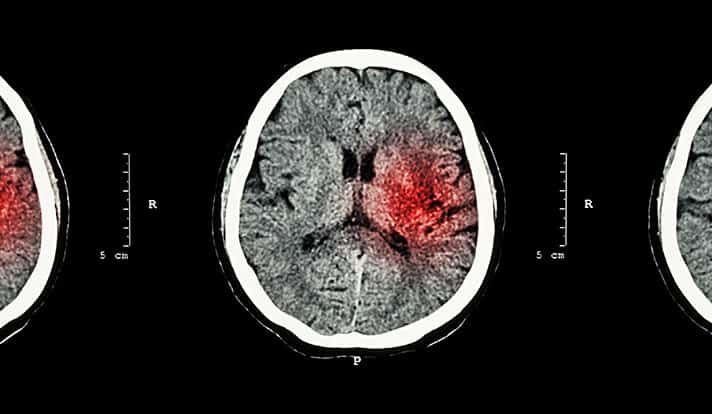Intravenous glyburide, designed to limit brain swelling in stroke patients, did not reduce the number of emergency surgeries in a Phase II clinical trial but did show promise in improving patient outcomes, according to a study published online Aug. 23 in the journal Lancet Neurology.
While IV glyburide did not achieve the hoped-for goal in the double-blind, randomized, placebo-controlled study, subjects who took the drug showed improvement in mortality rates and imaging measures of brain swelling. The findings were promising enough that Remedy Pharmaceuticals, which owns rights to glyburide, is launching a Phase III trial to test its efficacy.
“The drug has an excellent safety profile, and several key results demonstrate biological activity that may translate into potential clinical benefit,” said Yale’s Dr. Kevin Sheth, associate professor of neurology and of neurosurgery and co-principal investigator of the trial. “These findings warrant further investigation.”
Brain swelling is the major cause of death in patients with severe strokes and opening the skull to reduce the impact of swelling is the only existing treatment. Administration of the drug glyburide did not reduce number of craniectomies in 77 stroke patients studied. However, improvement in survival and overall recovery of function was noted in the glyburide group.
Sheth has no financial ties to Remedy, which funded the trial.
Dr. W. Taylor Kimberly,of the Massachusetts General Hospital (MGH) Department of Neurology is co-corresponding author of the report.
If our reporting has informed or inspired you, please consider making a donation. Every contribution, no matter the size, empowers us to continue delivering accurate, engaging, and trustworthy science and medical news. Independent journalism requires time, effort, and resources—your support ensures we can keep uncovering the stories that matter most to you.
Join us in making knowledge accessible and impactful. Thank you for standing with us!

